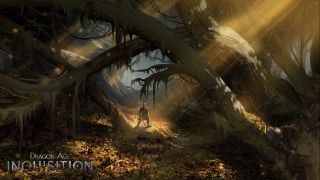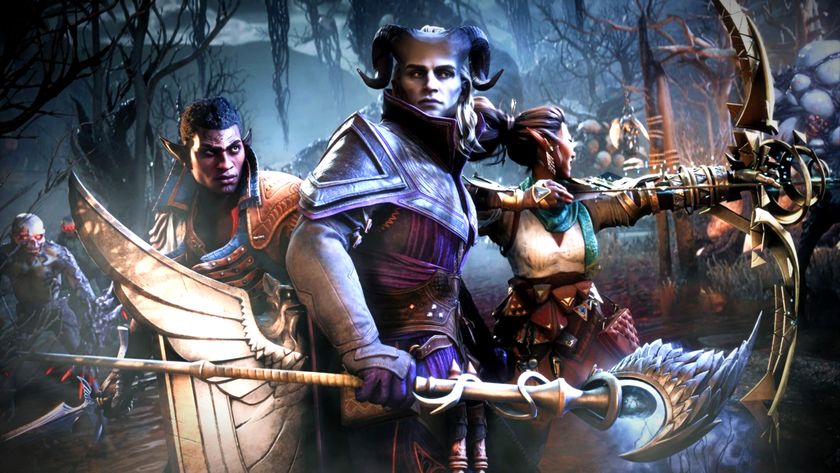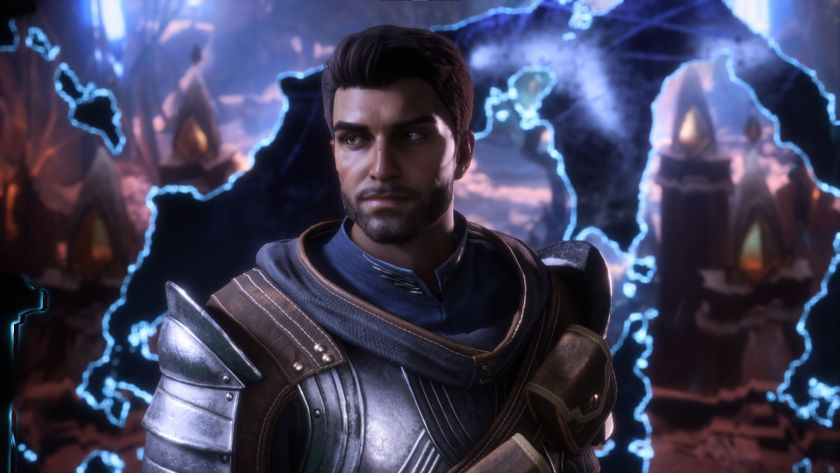The key to keeping games mysterious is in another reality
Listening to someone talk about an alternate-reality game is like listening to the ravings of a conspiracy theorist. "There was a secret message hidden in this person's blog, then I got a weird phone call telling me to do jumping jacks, then me and my friends had to solve this math problem and... don't laugh, this really happened!" Stories like this are common in the realm of ARGs, where large groups of people band together to unravel puzzles and mysteries too complex to tackle alone.
Video games and alternate-reality gaming have crossed paths plenty of times before, such as the I Love Bees ARG for Halo 2, but they've always been two very separate experiences. First you play the ARG, which is usually some sort of marketing tool, and then you pre-order the game. I think it's time to entwine these two more tightly, and inject some extra weirdness into the realm of video games. Specifically, there are three areas where I think games should steal a page or two from the ARG handbook.
ARGs are a community-driven experience. Between YouTube, streaming, eSports, and roughly six billion sub-Reddits, video games have never been more of a spectator sport. People love watching games, talking about games, and consuming others' experiences with games. So wouldn't it be great if those games could channel that drive and, in turn, reward you for your commitment? This is what ARGs are all about: providing wildly complex puzzles and challenges that no individual could reasonably complete on their own - unless you're, like, Neal deGrasse Tyson.
In his excellent talk about mystery and spoilers in games, Frog Fractions developer James Crawford points to Braid, Demon's Souls, Fez, and others as examples of games with challenging puzzles that require a group effort to solve. I would love to see more games seed their worlds with larger mysteries, mysteries that maybe go unnoticed for a week (or a year), only to suddenly spring forth and send fans into a frenzy over who can unravel its meaning first. Not only is this fun to watch and participate in, but having a larger mystery in a game lends it an air of mystique; because if one mystery exists, could there be others?
ARGs excel at telling a story across several different mediums. An audio log may lead to a blog post which leads to an encrypted video; each one providing a piece of the overall plot. Instead of passively absorbing some vague exposition as you wait for the next part of the game, the act of finding and understanding the story could be a little game in itself. And on the flip side, if all you're interested in is the action, then just ignore those narrative hooks entirely and get on with the killing, context be damned.
Think about the lore and exposition that gets bundled up in codex entries and background chatter between NPCs. Is this really the best way to present this information? In Dragon Age: Inquisition you make dozens of small decisions - sometimes with life and death consequences - but the aftershock is rarely felt outside of your teammate's immediate reactions. What if you received an actual letter from someone you exiled, or could look up their personal journal online (maybe there's a clue to some in-game treasure hidden in that journal)? Having a greater appreciation for the consequences of your actions will help you get invested in a game, and let you make decisions with your heart rather than 'Which one gets me more influence?'

ARGs can make the familiar strange again. If you've not seen it, there's an excellent documentary available on Netflix called The Institute about an ARG played out here in San Francisco. In this documentary, the game's creator, Jeff Hull, talks about how he wanted to inject some fun and mystery into the everyday surroundings of San Francisco by creating a fictional institute and giving the people who discovered it bizarre tasks to accomplish. He wanted players to view the world around them with the wide eyes of a child, to entertain the possibility that not everything is as it seems.
Sign up to the 12DOVE Newsletter
Weekly digests, tales from the communities you love, and more
At the risk of sounding like a curmudgeon, this imaginative spark is something I think is missing from a lot of modern games. And, apparently, I'm not alone. Nathan Ditam posted an editorial earlier this week touching on this same topic. In his editorial, Ditam talks about the joys of finding "enjoyable things to do within a world not specifically built for that purpose" - about actually playing with a game instead of just experiencing it.
So what do ARGs and Ditam's editorial have in common? Both deal in the unexpected. Ditam discusses the unexpected joy that can be derived from pushing the boundaries of a game's world. And in their own way, ARGs are all about stretching the boundaries of the real world. They can transform your 9-to-5 day into a fantastical voyage as you work to topple some shadowy organization by dancing in the street and sneaking out of a crowded office building (seriously, watch The Institute).
This is the real draw of alternate-reality games: they can infuse mystery and discovery into the mundane. As I've discussed, there are plenty of ways for games to play with our expectations, ways that ARGs use all the time. What if you got a call on your cell phone from the final boss of an RPG, or discovered its weakness by combing through its Twitter feed? There are so many tools available now to connect us with one another, I would love to see more developers put those to use in the services of making better - and stranger - games.













